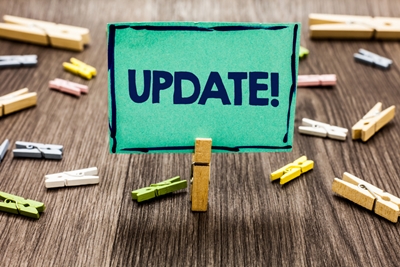The details on the government’s much-hyped First-Time Home Buyer Incentive (FTHBI) continue to trickle out.
The latest clues on its operation come from Evan Solomon’s interview with CMHC CEO Evan Siddall.
In that interview, Siddall comments on some lingering FTHBI question marks, namely:
The Maximum Home Price
- The maximum home price under the First-Time Home Buyer Incentive ranges from $505,000 to $580,000, he said.
- This is a rough estimate, CMHC notes, and it varies “based on the combination of the down payment and incentive (i.e., whether it’s a new or existing home).”
- CMHC tells us, “Hypothetically, a purchase price at the higher end of that range would be possible with a 15% down payment and the budget’s maximum shared equity mortgage of 5% [for existing homes], provided the end mortgage remains high ratio.”
- As a reminder, the first mortgage plus the shared equity mortgage must be no more than four times the borrower’s household income (the maximum total income allowed is $120,000).
How the “Sharing” Part Works
 Siddall explained the government’s equity sharing like this: “We buy your house with you and then get out of your way…We just share in the gains or losses in the home you buy.”
Siddall explained the government’s equity sharing like this: “We buy your house with you and then get out of your way…We just share in the gains or losses in the home you buy.”- The FTHBI provides maximum down payment assistance of 5% for existing homes and 10% for new builds.
- CMHC then takes a proportionate amount of the property’s appreciation or depreciation (based on some kind of objective appraisal).
- He provided this example: if CMHC gave you a 10% shared equity mortgage of $50,000, and your $500,000 property doubled, you’d owe CMHC the $50,000 shared equity mortgage plus another $50,000 (10% of the price appreciation).
- It would work in reverse if you sold at a loss.
What if the Market Tanks?
- Could CMHC have an adverse selection problem here?
- Siddall says: “If you’ve got enough money for your down payment and you can afford your monthly payments, why would you give us the upside?…unless you had a negative view on the future of house prices and you were going to stiff [us]…which is the game we’re in.”
 Shared equity mortgages lessen the chances that high-ratio borrowers abandon their homes if prices crash (since the government is absorbing some of their losses). This concept was extolled in the book, “House of Debt,” a book Siddall has cited many times.
Shared equity mortgages lessen the chances that high-ratio borrowers abandon their homes if prices crash (since the government is absorbing some of their losses). This concept was extolled in the book, “House of Debt,” a book Siddall has cited many times.
Miscellaneous
- The government’s shared equity mortgage is “going to help about 100,000 people over the period of the program,” Siddall said.
- He was asked if CMHC takes a piece of price appreciation resulting from homeowners renovating their properties. He replied that this is a detail CMHC is “still working out.”
- In the event of a default, he confirmed that the lender gets paid before CMHC.
*********
Will We Ever See It?
Interestingly, Green Party Leader Elizabeth May thinks this program might not even get off the ground.
She tells the Spy, “It is listed as a measure requiring legislation…That’s what the budget says.”
“Now we have that proposed change in the omnibus budget bill C97,” she adds. “Can they get the omnibus budget bill through the House AND Senate before end of June? Very doubtful.”
Ms. May’s Political Director, Angela Rickman, explained further: “The reason why it needs to get through the House by June is that the House will rise around the 20th of June, and will not be sitting again after that, because the writ will be dropped.”
“That means that the bill needs to get through the House of Commons, Committee, and then goes to the Senate for their process, which will include the Senate Committee process, then votes to give it Royal Assent. Then it comes back to the House. However, the Senate can stall the bill, by delaying votes, dragging out the committee process, etc. There is a chance that it won’t get through.”

 log in
log in
 The details on the government’s much-hyped First-Time Home Buyer Incentive (FTHBI) continue to trickle out.
The details on the government’s much-hyped First-Time Home Buyer Incentive (FTHBI) continue to trickle out.
1 Comment
If you have 15% to put down I don’t see the point of paying a $14,000 insurance premium and giving CMHC 5% of your house appreciation. The interest you save on CMHC’s interest-free 5% FTHBI loan won’t come close to making up for that.